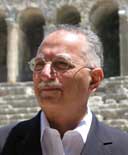Islam and/in the West |
The revolutions in Tunisia and Egypt provide examples of largely peaceful transitions of power after decades of unflinching authoritarian rule.
Yet change in these and other Arab countries caught the world by surprise.
Talk of an “Arab Spring” has dominated Western media and political debate for months now. Many Muslims living in the West are also watching events in the region closely, hoping that their co-religionists will soon enjoy greater rights, freedoms and protection under the rule of law, much as they have for many decades.
But there is no guarantee that such transitions will have peaceful outcomes. Indeed, the current situations in Libya, Bahrain and Yemen are extremely worrying and finding workable political solutions in these countries will challenge not only the Muslim world, but also the West and the entire international community.
It would also be wrong, however, to define the relationship between the Islamic world and the West solely in light of today’s Arab mass movements. There is another aspect to the relationship: Islam in the West -- that is, issues concerning Muslims living in Western societies, particularly Europe.
A report published in May 2010 by the Council of Europe titled “Islam, Islamism, and Islamophobia in Europe,” recognized that Europe has been home to Muslims for many centuries, and acknowledged the contribution of Islamic civilization to European culture. Yet, as the report also noted, Muslims in Europe today feel socially excluded, stigmatized and discriminated against. Indeed, they have become victims of stereotypes because of their religious and cultural traditions.
A rising tide of Islamophobic rhetoric can be seen in Europe’s mainstream media and among its political parties -- for example, the Danish People’s Party, the Dutch Freedom Party, the French National Front, the Swiss Peoples’ Party, the English Defense League, the Italian Northern League and the Austrian Freedom Party. Similar parties exist or are emerging elsewhere in Europe.
This situation only serves to remind us of the inadequate knowledge many Europeans have of the common roots and historical connections linking the Islamic world and the West. It is also indicative of the need for new relationships based on understanding, tolerance and respect for cultural diversity.
According to the Pew Foundation Forum’s September 2010 report on Religion and Public Life, Western Europe’s Muslim population totals more than 17 million. In countries like Austria, Belgium, France, Germany, the Netherlands, Sweden and Switzerland, Muslims comprise 5 percent or more of the population. They must be supported and encouraged to play their full role in both community and public life.








 Professor Dr Ekmeleddin Ihsanoglu of Turkey is the Secretary-General of the
Professor Dr Ekmeleddin Ihsanoglu of Turkey is the Secretary-General of the 
Post new comment